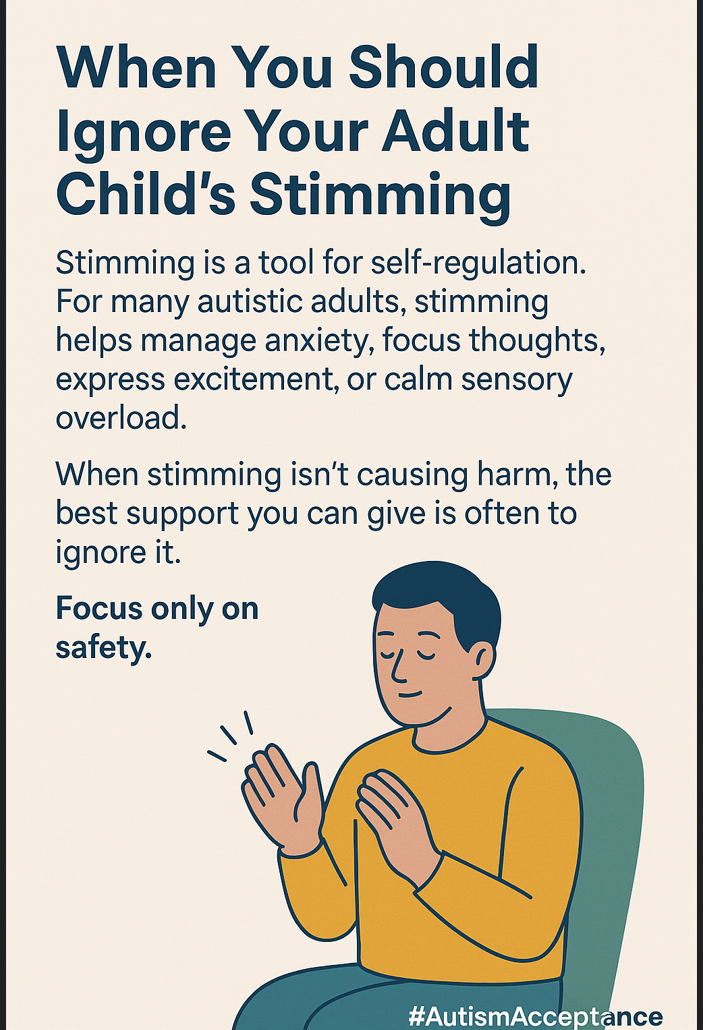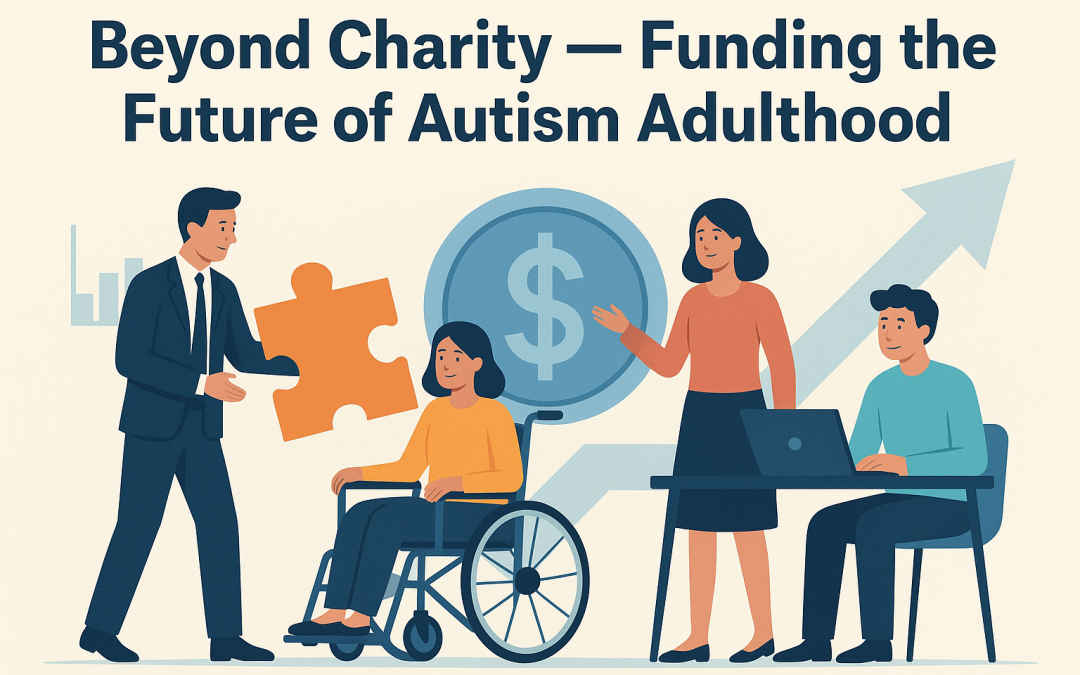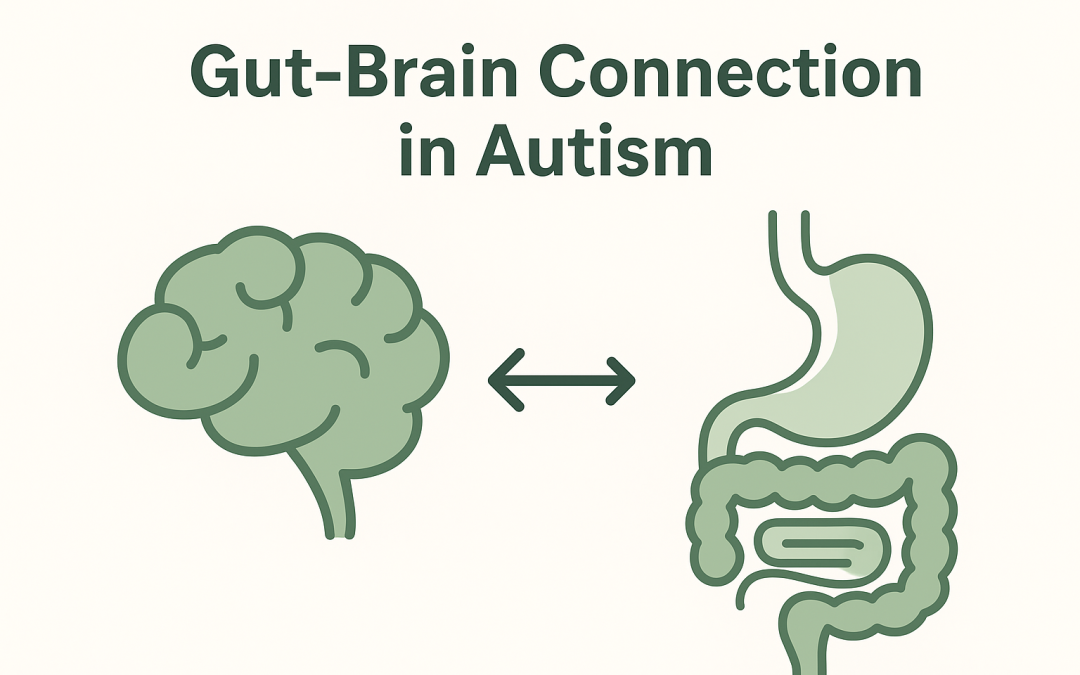If you are the parent of an adult with autism, you’ve probably seen stimming—repetitive actions like rocking, hand-flapping, pacing, or humming—many times. While these movements can draw attention or make others uncomfortable, it’s important to recognize what they truly are: tools for self-regulation. For many autistic adults, stimming helps manage anxiety, focus thoughts, express excitement, or calm sensory overload.
Parents often feel pressure to reduce or “fix” stimming behaviors, especially in public. But when stimming isn’t causing harm, the best support you can give is often to ignore it. By doing so, you communicate acceptance and trust in your child’s ability to manage their emotions. Trying to stop harmless stims can increase distress and even lead to meltdowns or withdrawal.
The key is to focus only on safety. If a stim involves self-injury (like head-banging or biting) or risks harm to others, then gentle intervention is appropriate. In those cases, work with professionals to replace dangerous stims with safer alternatives that still offer sensory or emotional relief.
Otherwise, it’s okay—and even healthy—to let your adult child stim freely. Every person needs outlets for stress. For autistic adults, stimming may be as natural and necessary as deep breathing or pacing before a big presentation.
Your acceptance helps reduce shame and builds confidence. Over time, your adult child may learn to self-regulate even better, knowing their needs are respected rather than controlled.
So next time your adult child flaps their hands, rocks in a chair, or hums a tune, take a breath and let it be. You may be witnessing not a “problem,” but a powerful act of independence.




